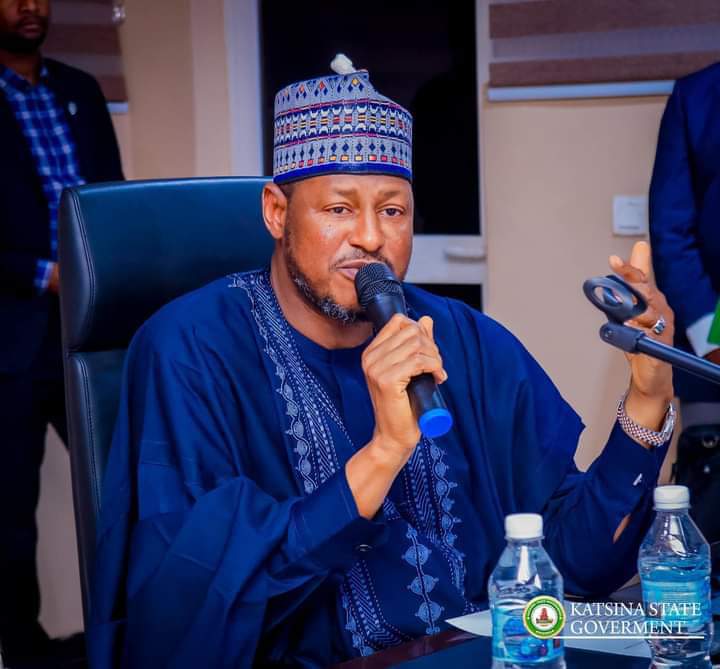Why The Preferential Treatment For The ‘White Skinned’ Worker?

- Katsina City News
- 08 May, 2024
- 159
By Abdu Labaran Malumfashi.
During my secondary school days in the 70s, when the then state government hired a ‘white skinned’ male teacher from a particular Asian country, he would come to Nigeria with a female companion, whom he would claim to be his ‘wife’. In getting to where he was posted to teach (mostly in the urban areas), he would find a way for his female companion to also be employed as a teacher in the same field, but in the lower classes.
In most cases, these female companions were not literate enough to teach their claimed areas of specialisation. They were also not fluent enough in the language (English) they were going to teach their students. Some could hardly speak the language, yet they were employed to teach.
How then did the female ‘teachers’ cope with the job? Most of the time it was the male teacher that taught by proxy. The lady would go to her class and operate on different levels with the students, because they hardly understood what the other was saying. With the day’s job done, she would then go home and explain what had happened to the ‘husband’.
Since they were teaching in the same field, the ‘husband’ would ‘teach’ the ‘wife’ the lesson and its plans (lesson plans) for the following day. And the ruse would continue that way until the ‘partners’ went back to the country they came from.
This long recall was necessitated by the hiring policies of some big private companies owned by Nigerians and operating in Nigeria these days.
In a previous article, I accused some of the ladies of preferring to be in a ‘relationship’ (whatever that means) with the ‘white man’ in order, allegedly, to have a fair skinned child or children.
Not long ago, an Asian brutally ‘slaughtered’ one of such women; his northern girlfriend in one of the big cities in the north, on the suspicion that she was cheating on him with her Nigerian boyfriend. A court has found him guilty of murder and sentenced him to death by hanging.
If it is any consolation to the ladies, further investigation has shown that the big companies in this country, owned by Nigerians, share a common mentality with them. They go for the ‘whites’ even where a black skinned Nigerian, with the same or better qualification, could do the job as well.
I am not going to mention the names of the ‘offending’ companies, but a simple visit to their headquarters and or places of operation, is enough to make my point clear.
The ‘big’ local companies (although their operations are not necessarily local) seem in love with hiring white skinned staff who have the same qualification with their Nigerian counterparts.
In fact, some Nigerians may even have a higher qualification than the average ‘white man’ employed by some of the big local companies, but are not preferred for the same job for reasons known to the owners.
Where (rarely) the ‘white man’ and his Nigerian counterpart are employed in the same position by these companies, they are treated unequally, with the non Nigerian getting the better treatment. For instance, some of the non Nigerians could be seen being chauffeured driven in company vehicles, while their Nigerian counterparts drive themselves, where they are lucky to have official vehicles.
Although the companies may have their reasons, since they are out to make money, most of which they make locally anyway, it is still disheartening to see that foreigners are treated better than their local counterparts, even in cases where their qualification and job briefs are the same.
It is stated that some of these companies are ‘forced’ into hiring the foreigners by the countries they get some of their materials, loans and whatever they may want for operation in their companies.
That is what is called ‘service to the people’, elsewhere, which governance is supposed to be all about, anyway. But not in what is known as the ‘Third World Countries’, a bloc where Nigeria, despite its abundant natural and human resources, belongs.
Nigeria may be blessed with human to go with the mineral wealth, but not the leadership to harness the resources for the common good of all its people, yet.
Yet, because it is, in my apolitical opinion, still early days to judge the present administration, and conclude with a certainty that it is a success or a failure. We hope it succeeds for the good of all Nigerians.
Malam Malumfashi wrote from Abuja.
Leave a Reply
Your email address will not be published. Required fields are marked *







